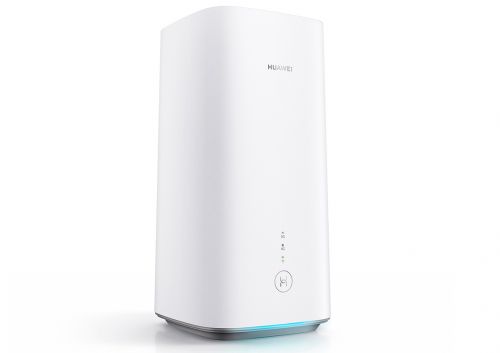Much has been said about the wonders of 5G broadband and how it will revolutionise homes, but it's understandable if you feel a little cynical at the proposition. After all, so many technologies can be full of hype and not much else.
We're confident that 5G broadband will prove to be a great replacement to fibre broadband though, and here's a look at the many reasons why it's such a good option, providing you live in an area that supports 5G.
1. The speed is potentially faster
Right now, 5G home broadband is currently slower than the fastest fibre out there, but it has the potential to outpace it pretty soon. Speeds of 400Mbps to 500Mbps aren't that hard to come by in areas of London at the moment, and are generally more reliable than your chances of reaching maximum speeds via fibre broadband. That's only scratching the surface of 5G's potential too with much faster speeds seemingly possible once the technology is perfected.
Other areas of the country haven't quite reached these lofty heights yet, but 5G is very new. There's plenty of time for expansion here, and everything points to the idea that 5G will be much faster than fibre in the near future. Like with any broadband related decision, it's worth doing your research and consulting average speeds in your area to see what's best for you at the moment.
2. 5G is very portable
In fact, a 5G home broadband setup is so portable that you can take it to a different house, providing it has a 5G signal. Moving home? Just pack it up alongside all your other technology and plug it back in once you arrive. No need to wait for your broadband provider to switch the service back on.
Similarly, if you're going away for a few days and want to take your connection with you, you can. Just make sure you're in an area that has a 5G signal - something that will become less of an issue as time goes on.
Also, things change around the home over the years, and it's annoying to realise that you're somewhat restricted by where the router can go due to where an engineer installed something years ago.
Want to rearrange things? Just unplug the 5G router and take it to a different room. It's as simple as moving any other small device in your home.
3. There's no need for a landline
When did you last use your home landline? Odds are it wasn't recently. Typically, we all use our mobile phones for daily calls and landlines are left for cold callers to pester us on. It's a pointless addition to your home and - worst of all - one that you generally have to pay extra for when signing up with fibre broadband providers.
Sign up to a 5G broadband provider however, and you don't have to worry about needing a landline ever again. Instead, your 5G home broadband works by plugging in a router and, well, that's about it.
4. No need for an engineer to visit
Tied into the lack of landline, you don't need an engineer to visit to set up your service. Instead, the 5G home broadband router is sent to you and it takes minutes to get started. That means no irritating need to set aside time or take time off work to wait for an engineer to turn up, and you can feel safely in control of everything yourself.
When a landline or cabling is installed in your home, the engineer generally does a fairly neat job of clipping cables to walls but it's not convenient, is it? Your landlord might not be impressed and you might not be too keen on seeing your recent DIY efforts be interfered with by an engineer. Accidents happen during new installations unfortunately, so things do get damaged.
Because 5G home broadband works through a router, you don't need extra cables or for a landline socket to be drilled in anywhere. It's cleaner, safe, and far neater than the older alternatives.
5. The latency is better
Latency on 5G connections is very low which means requests sent to the network are near instantaneous. In theory, 5G can have a latency as low as 1ms while fibre broadband is often around 20ms.
What does that mean for you? If you're a gamer, it means you can't blame lag if you miss a shot. The network will react near instantaneously which means any 'lag' is your ability to react quickly enough. Low latency is important in your quest to be the best.
For everyone else, it simply means that anything you do online should respond far faster than on a fibre broadband connection. Sometimes, this might seem near imperceptible but the more you do it, the more you'll notice the difference when browsing elsewhere.
6. There's contract flexibility
Typically, 5G based contracts are more short term than regular home broadband contracts. 12 month contracts are quite easy to come by, as well as 18 months if you prefer. Besides the fact you don't have to worry about complex switching between services, it's useful knowing you're only tied in for 12 months at a time. In the early days of 5G, this will be particularly useful as you may find better deals elsewhere as things evolve.
7. Potential to transform rural areas
Rural areas have long been left with slow broadband speeds due to the prohibitive cost of bringing fibre to areas with low population density. That's where 5G will come into its own because a single mast is more economical than laying a widespread network of cables.
The UK government is also providing funding to bring 5G to rural areas under the Rural Connected Communities (RCC) project, which also proposes raising maximum mast heights to provide better coverage in rural areas.
Rural 5G coverage isn't something that will happen overnight, but it is a long-term priority for the mobile networks who are keen to pick up on new market opportunities currently overlooked by fibre broadband providers.





